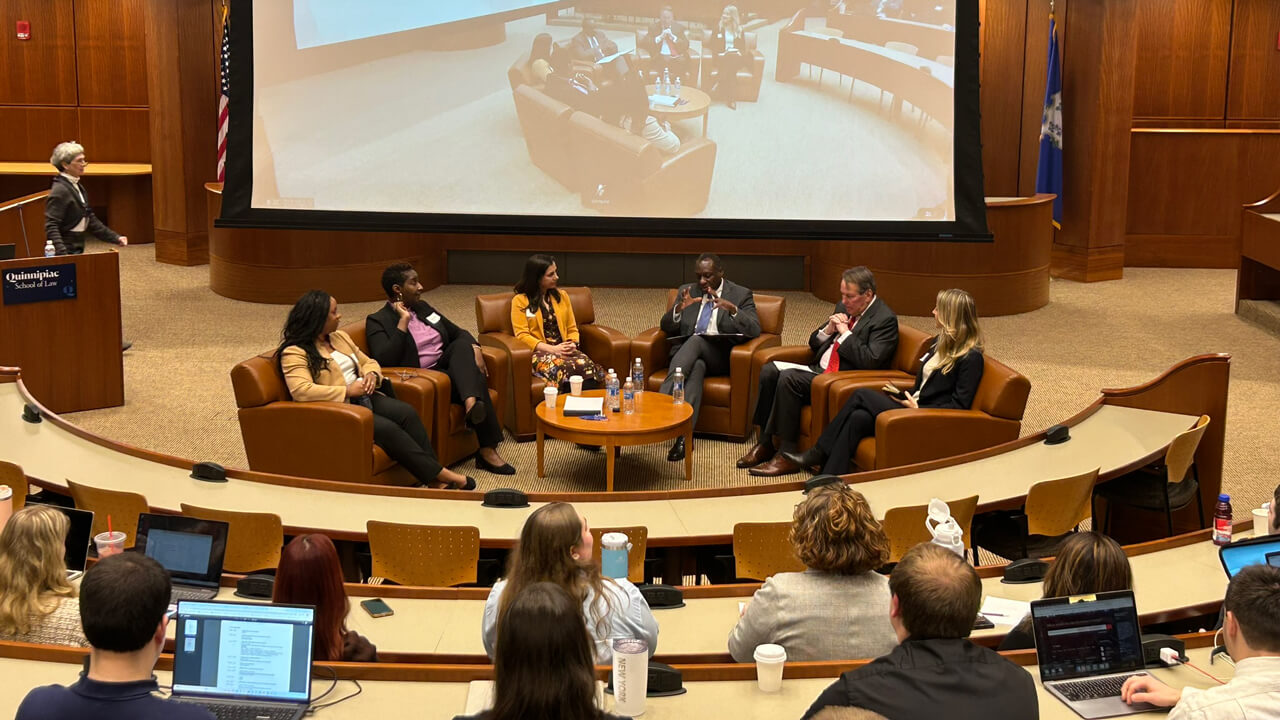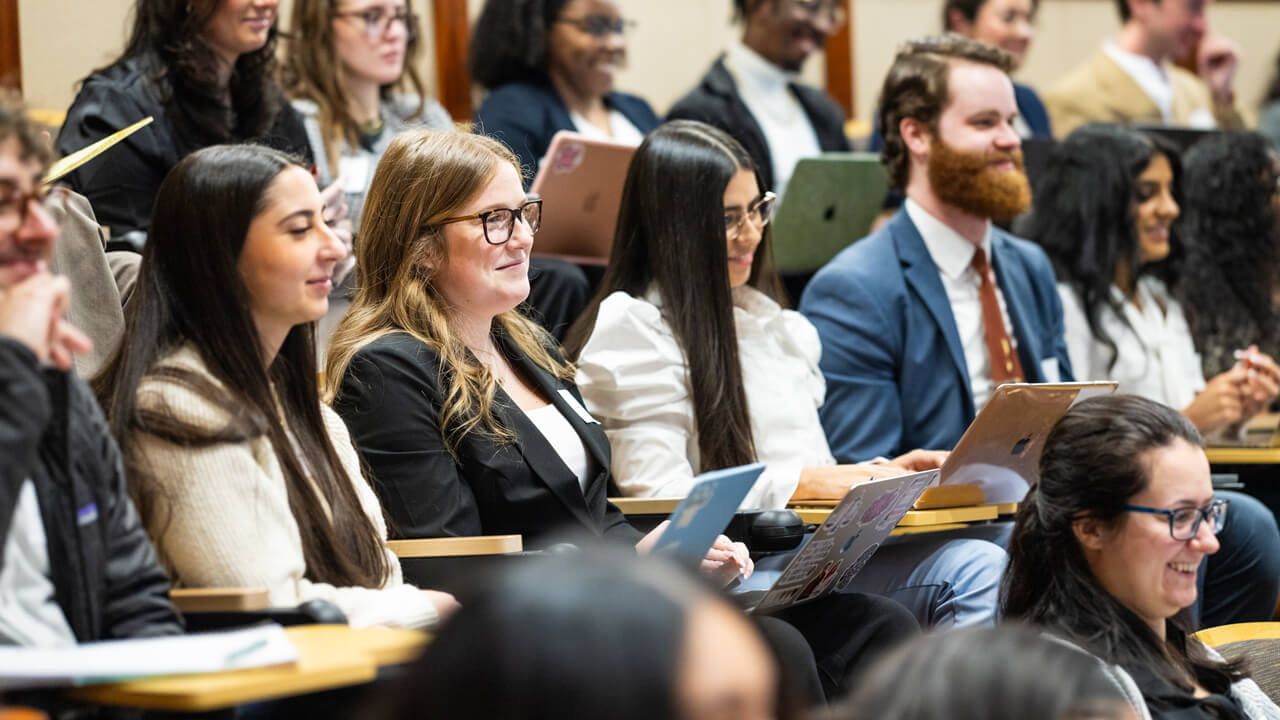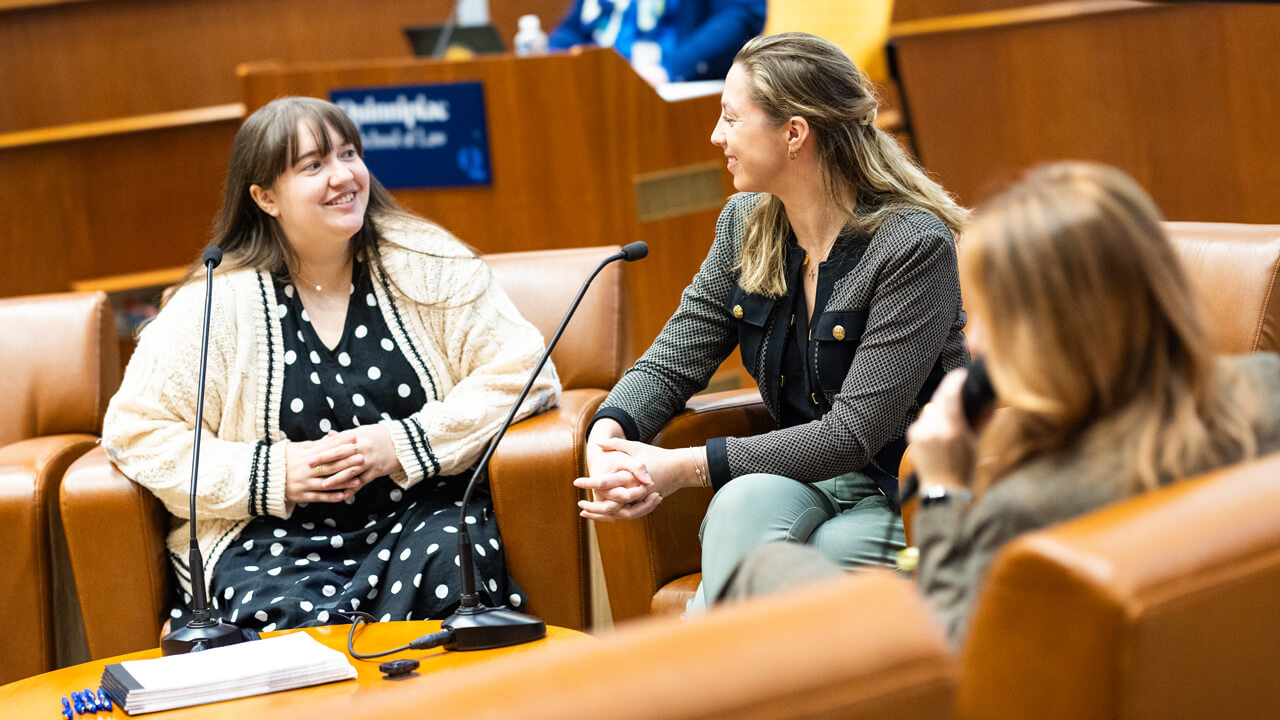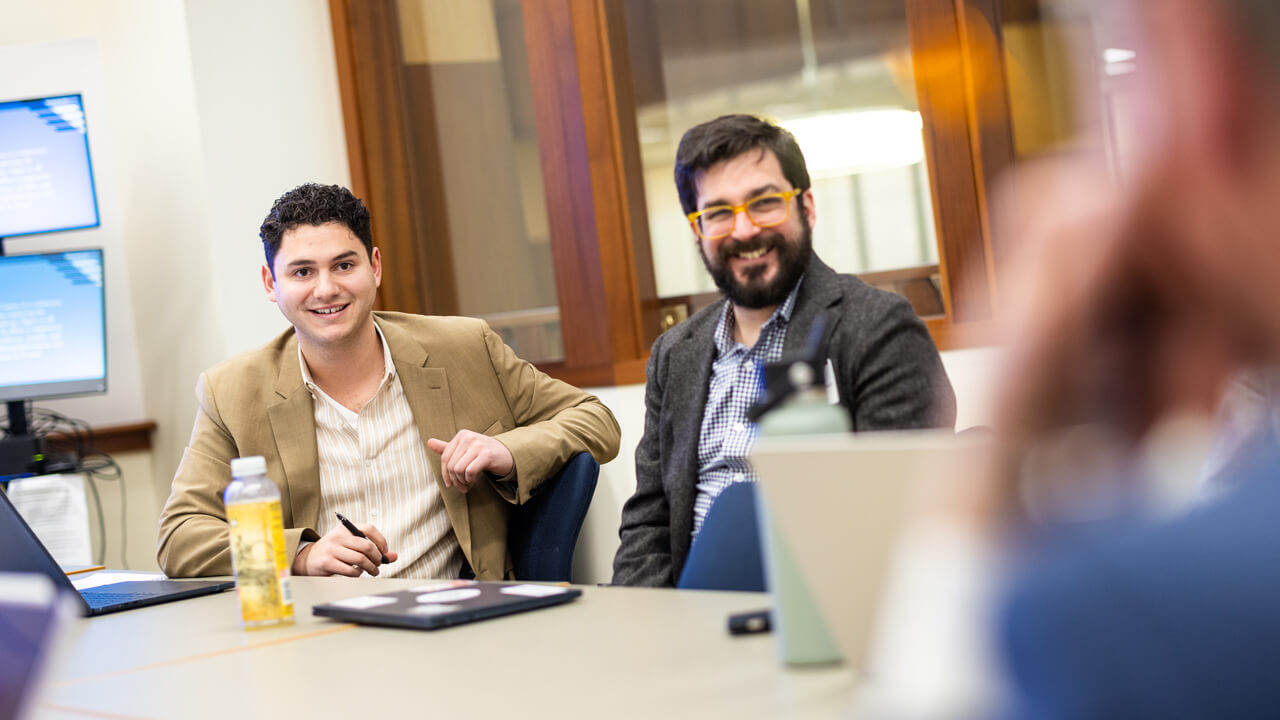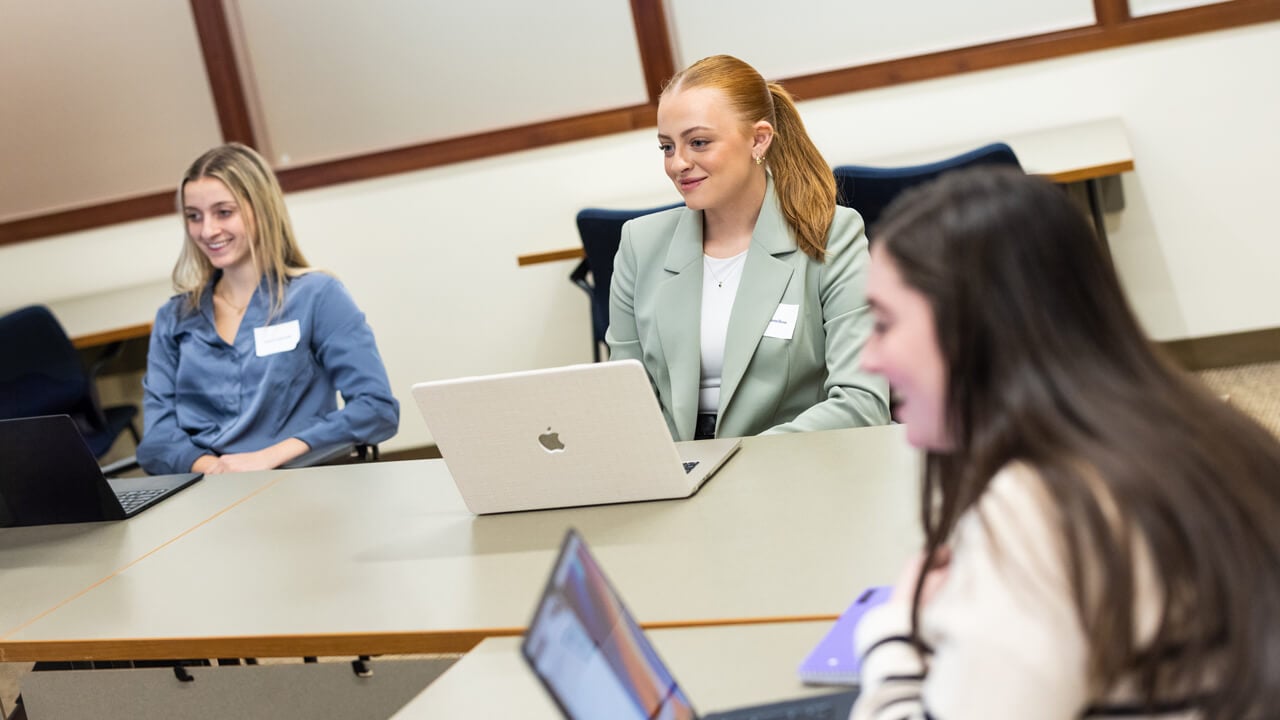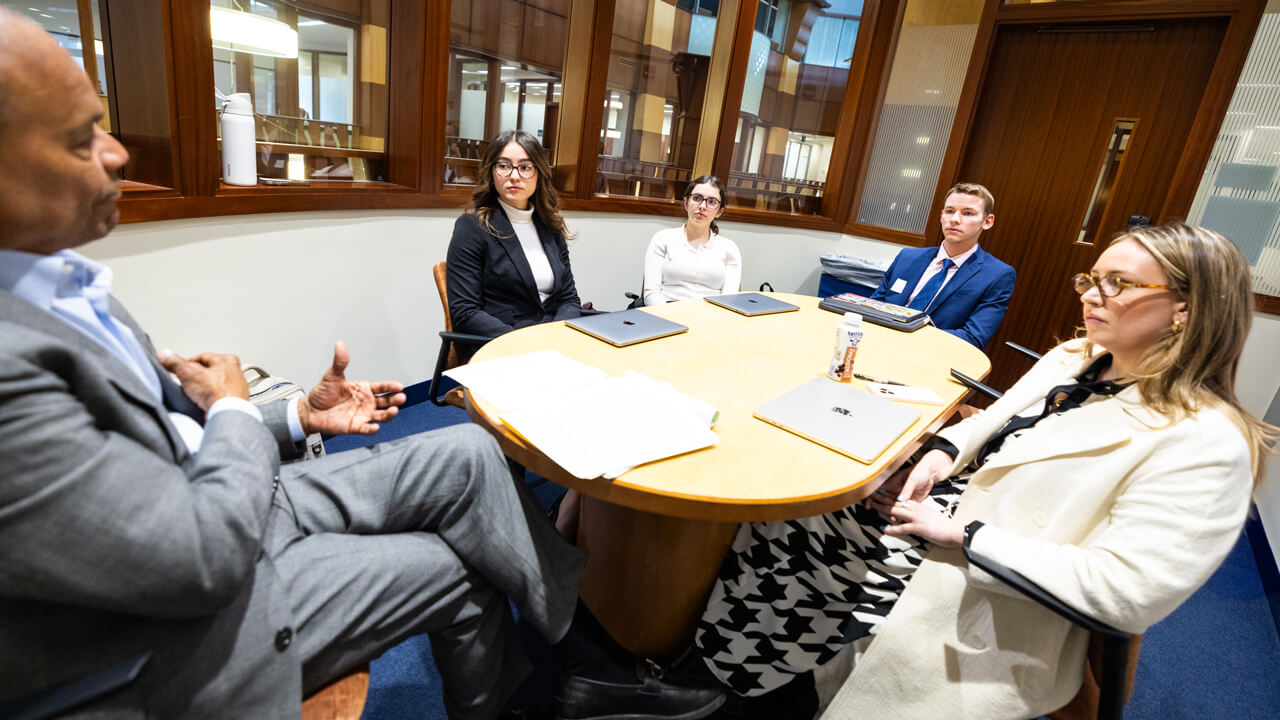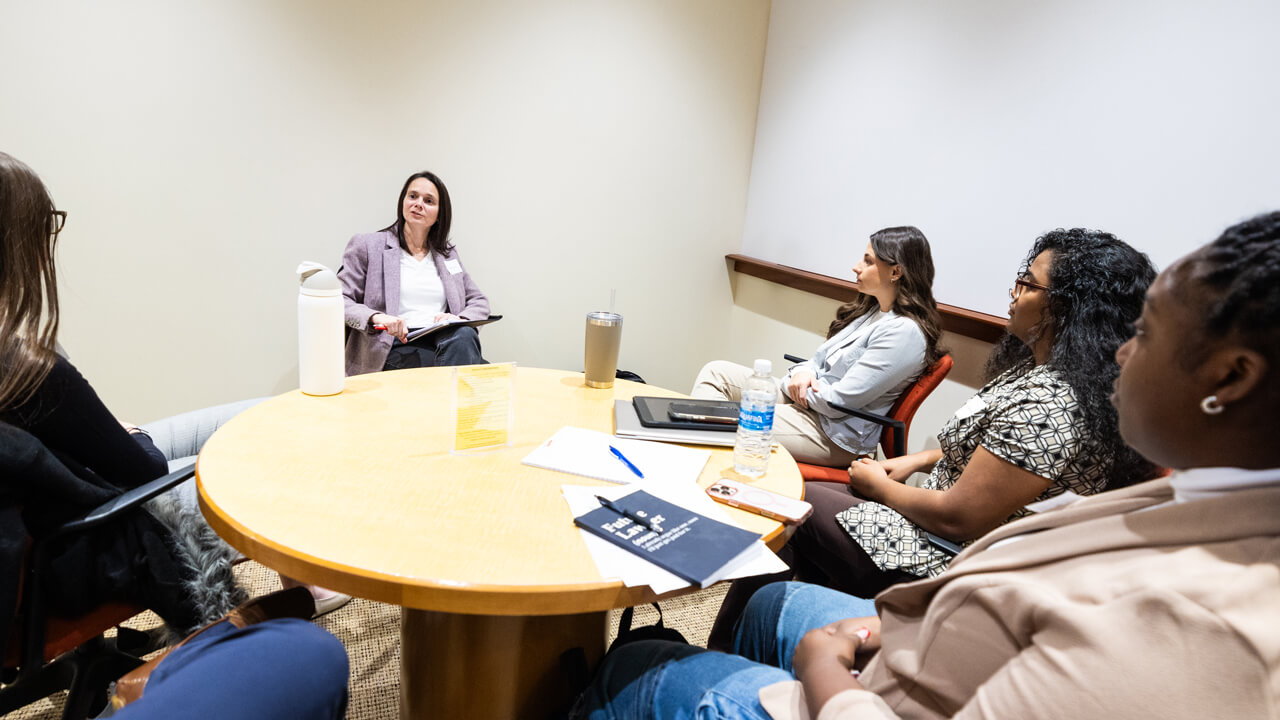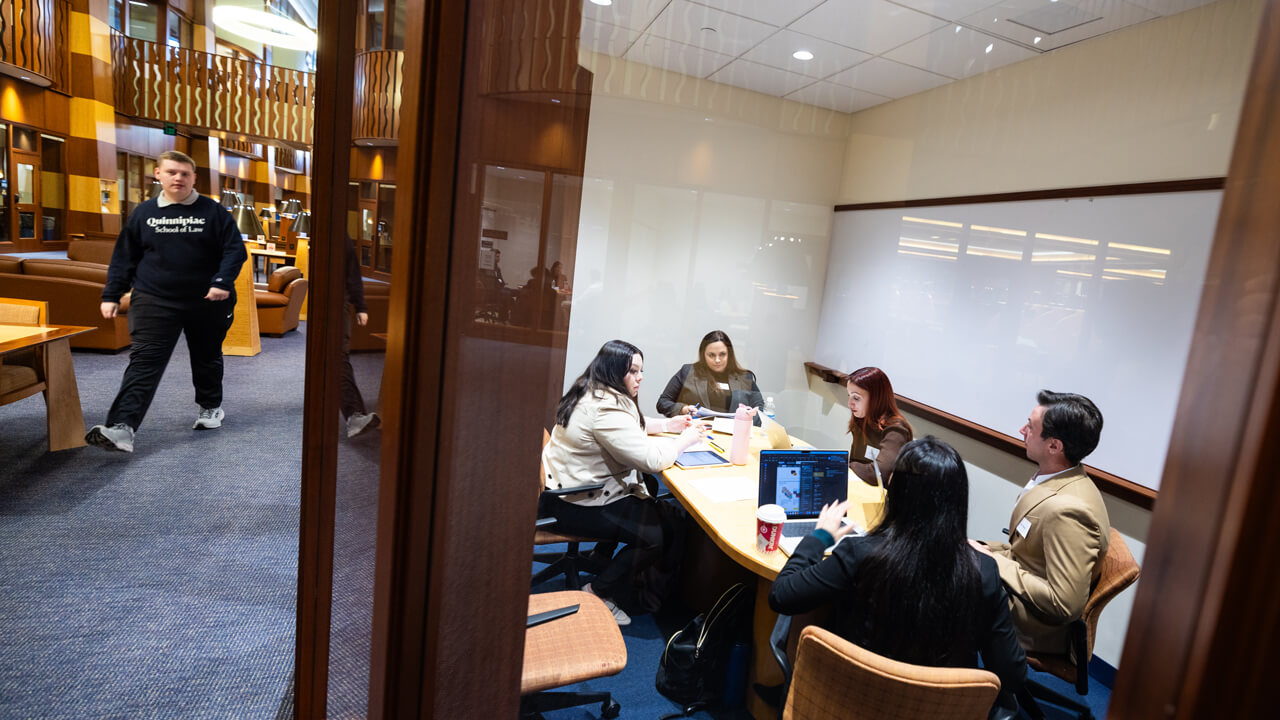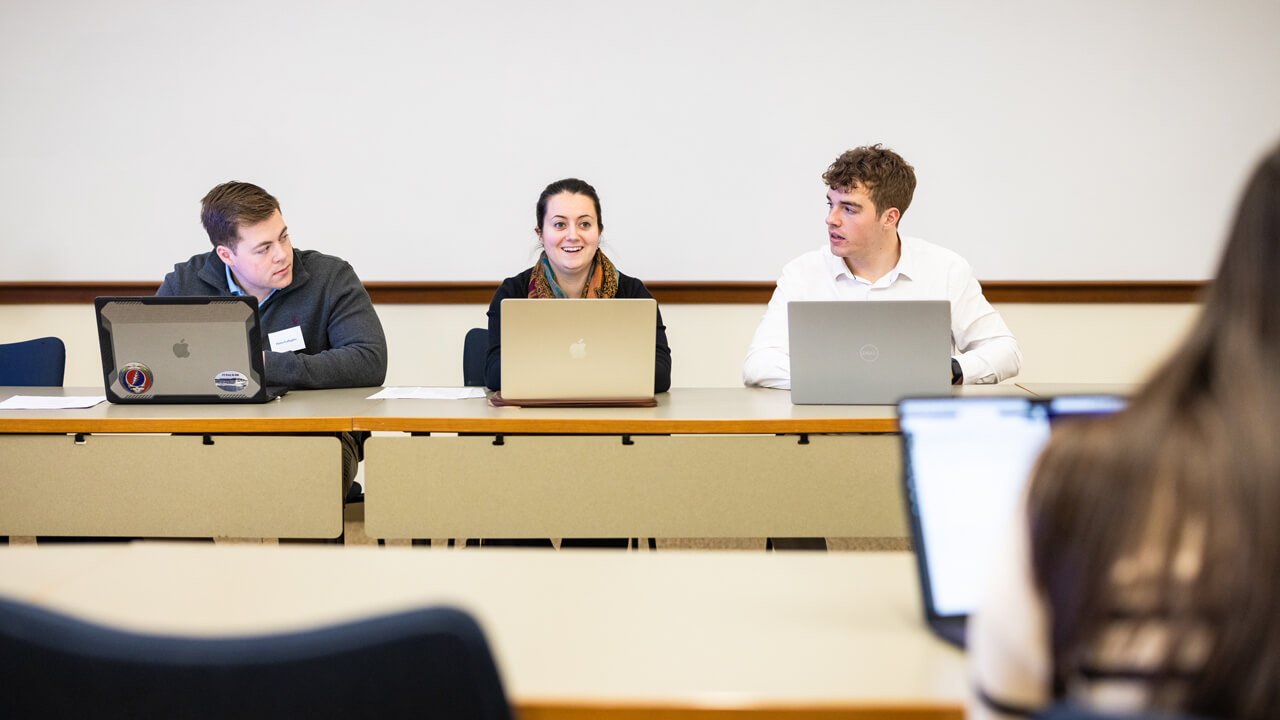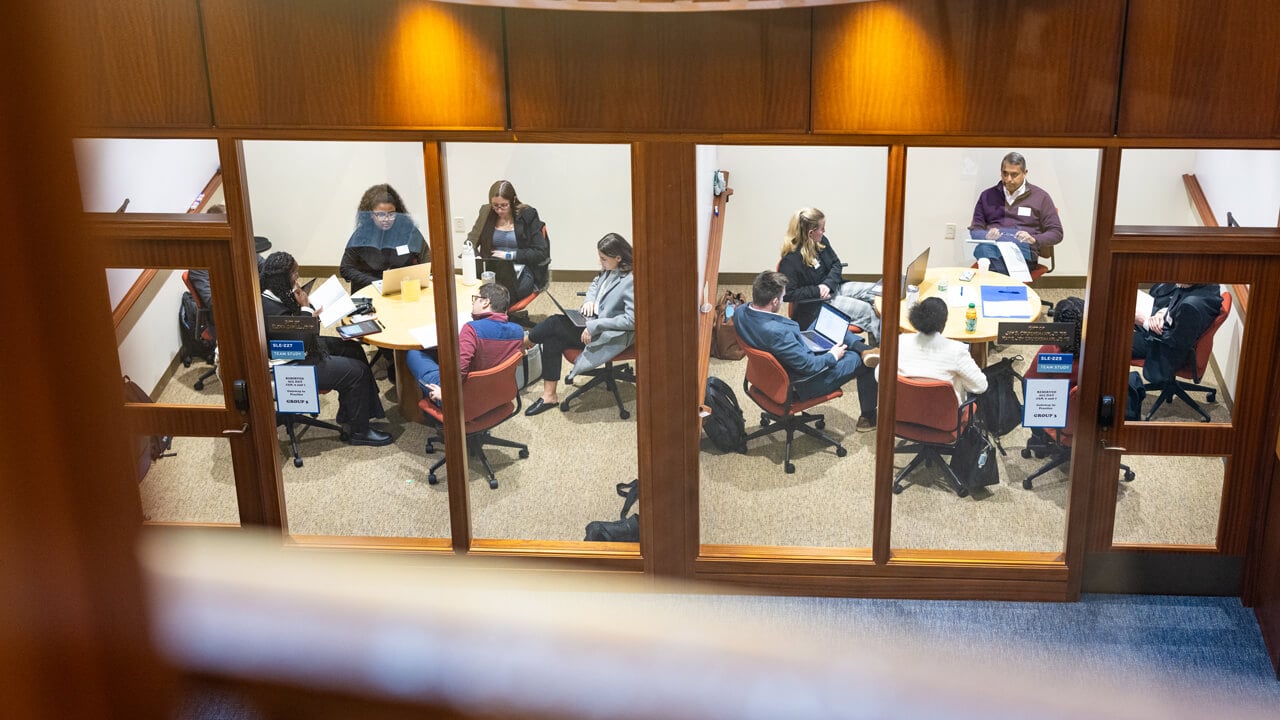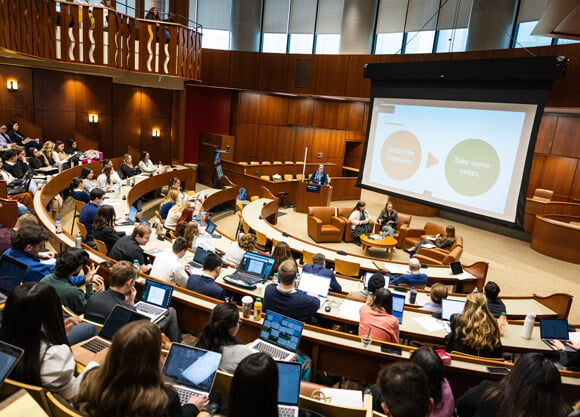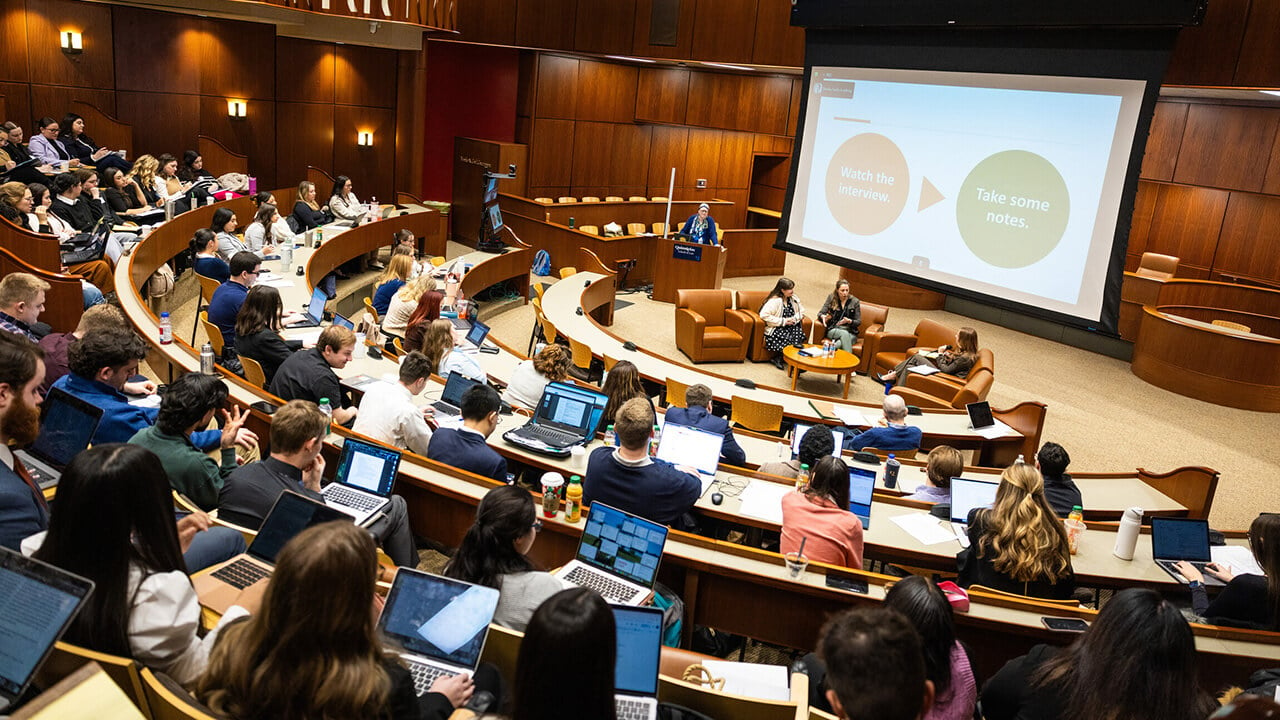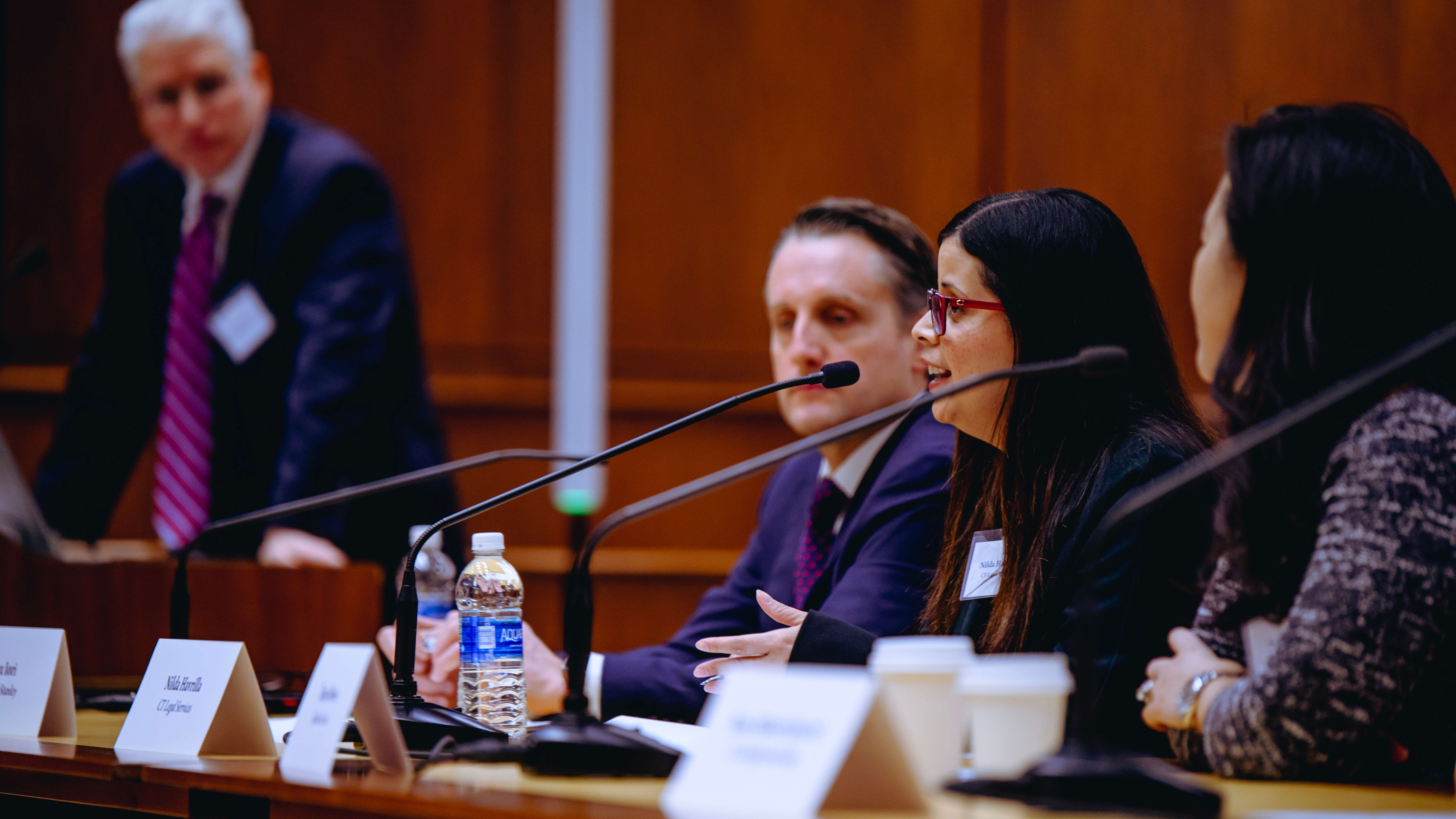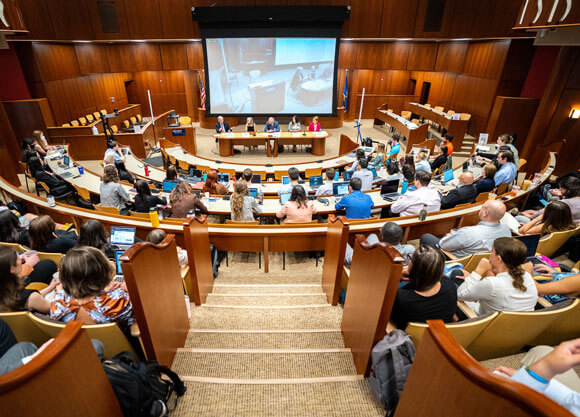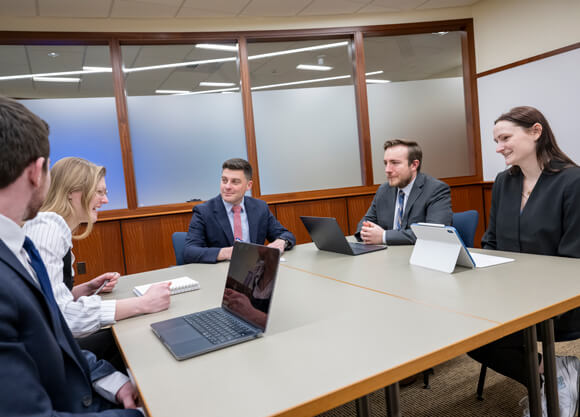
This integrated three-year progression guides students from classroom to practice through three essential pillars:
-
Professionalism and Career Skills: Equips students with the professional competencies, ethical understanding and career development tools needed to thrive in today's legal marketplace.
-
Experiential Learning and Service: Provides hands-on opportunities to apply legal knowledge in real-world contexts, developing practical skills while serving the community.
-
Licensure Success: Strategically prepares students for the bar examination through targeted coursework and post-graduation support.
Bridge I establishes the fundamental professional skills, research competencies and academic habits needed for success in law school and beyond. Through structured coursework and small group activities, first-year students develop a strong professional identity, career planning skills and legal research abilities. This initial phase introduces students to the legal profession while providing essential academic planning support tailored to both full-time and part-time pathways.
Bridge II deepens students' readiness for practice through experiential learning and foundational coursework essential to both professional practice and bar success. During their upper-class years, students complete six credits of hands-on legal experience alongside focused courses that provide critical context for navigating the practice of law. Collectively, Bridge II develops practice-ready professionals with both the practical skills and contextual understanding needed to excel in the legal profession.
Bridge III provides comprehensive support during the critical period between graduation and the bar exam. This final phase of the Bridge to Practice program gives graduates access to a commercial bar review course, along with structured study environments, wellness resources, and simulated testing experiences. Bridge III maintains the School of Law’s commitment to student success through the licensure process, ensuring graduates have all necessary resources to succeed on the bar examination and transition confidently into legal practice.

